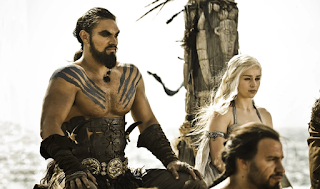Independent Desires and Loyalty
When it comes to characters that have made influencing decisions, its due to their willingness to follow their own desires and have their loyalty to their superiors tested that they are able to make these decisions at all. This can include consequence that could result in demolishing or enhancing their internal desire for a different outcome. Fiction includes this aspect presumably to give more perspectives to a situation especially when issues arises. For example, we can take a look at the backstory of Aulë, the Smith of Arda and creator of the dwarves, than compare this to other powerful myths and stories such as those in Greek mythology and Christian scripture.
The story of Aulë begins with his reluctance to wait for the creation of the perfect children of Iluvatar, ones directly envisioned by the first deity of Arda, Iluvatar. So of his own devices he created the dwarves. Like children, they obeyed his command and only acted upon his wishes. However, when he meet with Iluvatar , he was questioned about his doings and how his independent affairs corresponded with Iluvatar's planned creation. Aulë assumed Iluvatar wanted to vanquish the dwarves so Aulë took it upon himself to destroy them, despite seeing them as his children. However, Iluvatar stopped him and accepted the dwarves. In resemblance to the Bible’s Genesis, when God told Abraham to sacrifice his son to test his faith and devotion. Abraham followed through and would’ve killed his own son until God stopped him and was satisfied by the man's faith and obedience. That Aulë would’ve destroyed his creations, his children, in loyalty to and out of faith for Iluvatar echos this bible story.
Much of this story also bears resemblance to the Greek myth of Prometheus as well. Prometheus went against a higher authority to help out mankind that in his opinion was suffering from lack of resources and unhappiness. So he provided man with fire that he stole from Zeus. Due to his independent desire he was punished harshly. Prometheus’s intentions were to benefit others who seemed to be of little power and were suffering punishment. Aulë’s intentions were to create a beneficial race that could withstand the insufferable time of Melkor. There could also be a comparison with the presence of darkness with the human race due to the lack of light and the dark times of Arda's chaos from Melkor.
In conclusion, Aule is a product of these influence, which hold common aspects of stories that encourage obedience to a higher power at the same time they encourage free thought.
The story of Aulë begins with his reluctance to wait for the creation of the perfect children of Iluvatar, ones directly envisioned by the first deity of Arda, Iluvatar. So of his own devices he created the dwarves. Like children, they obeyed his command and only acted upon his wishes. However, when he meet with Iluvatar , he was questioned about his doings and how his independent affairs corresponded with Iluvatar's planned creation. Aulë assumed Iluvatar wanted to vanquish the dwarves so Aulë took it upon himself to destroy them, despite seeing them as his children. However, Iluvatar stopped him and accepted the dwarves. In resemblance to the Bible’s Genesis, when God told Abraham to sacrifice his son to test his faith and devotion. Abraham followed through and would’ve killed his own son until God stopped him and was satisfied by the man's faith and obedience. That Aulë would’ve destroyed his creations, his children, in loyalty to and out of faith for Iluvatar echos this bible story.
Much of this story also bears resemblance to the Greek myth of Prometheus as well. Prometheus went against a higher authority to help out mankind that in his opinion was suffering from lack of resources and unhappiness. So he provided man with fire that he stole from Zeus. Due to his independent desire he was punished harshly. Prometheus’s intentions were to benefit others who seemed to be of little power and were suffering punishment. Aulë’s intentions were to create a beneficial race that could withstand the insufferable time of Melkor. There could also be a comparison with the presence of darkness with the human race due to the lack of light and the dark times of Arda's chaos from Melkor.
In conclusion, Aule is a product of these influence, which hold common aspects of stories that encourage obedience to a higher power at the same time they encourage free thought.



Good post. I liked your comparison of the story of Abraham and Isaac and the story of Aulë. I think this theme of taking things into your own hands in defiance of a larger plan is very relevant to the real world. And I think that the heart of the theme is that humans often think higher of ourselves than we really are. We see all the things we can do and create and it breeds arrogance. But this arrogance usually leads us to face problems that are much bigger than what we can deal with. This theme is played out in many stories, such as Frankenstein, and in one of my favorite movies Godzilla. In both the original Japanese film and the 2014 remake (which I love), humanity awakens great forces of nature through our arrogance and these great powers wreak havoc upon us. Just goes to show how human arrogance can really undo all the things we can do. "The arrogance of man is in his thinking that nature is in his control. And not the other way around."
ReplyDeleteI find the comparison of Abraham and Isaac with Aule to be a rather interesting one. It goes back to how heavily Tolkien is influenced is influenced by his religion and what he did with that, as well as how his story isn't as unique as he would like it to be. I always love the story of someone taking things into their own hands in defiance of a higher authority, and then things work out for them in the end. It is always a kind of plot that interests me, and that I find to be the best kind of story.
ReplyDeleteI agree with Truitt, the story of Abraham is a great comparison for the story of Aule and the Dwarves. I like the comparison to Prometheus too even though the ending is different in that Prometheus doesn't repent for disobeying Zeus. The three share different similar aspects and both Christianity and Greek mythology are likely influences for Tolkien that come through in this story. you could also elaborate on the whole Melkor as an age of darkness thing and probably talk about the ages of man from Greek mythology.
ReplyDelete